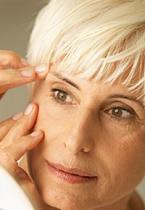Anti-Aging: One Antioxidant protects Eyes, Brain, and prevents Wrinkles
(Mercola.com) -- Rudi Moerck, who has advanced training in biological sciences, is an expert on fats and antioxidants. Astaxanthin is recognized as one of the most potent and exciting antioxidants to emerge, and is backed by extensive and compelling evidence. Extracted from marine algae, astaxanthin is what makes gives flamingos and salmon their pink coloring after eating the algae. -- While a member of the carotenoid family, astaxanthin has many unique properties that put it in a class of its own. For example, it cannot function as a pro-oxidant, making it a highly beneficial antioxidant. It’s also unique in that it can protect the entire cell—both the water- and fat-soluble parts—from damage -- While you can easily obtain most of the carotenoids you need from your diet, getting therapeutic amounts of astaxanthin through diet alone is difficult. You’d have to consume three-quarters of a pound of wild-caught sockeye salmon, which contains the highest amounts of astaxanthin of all the marine foods, to receive the same amount of astaxanthin you’d get in a 4mg capsule if you were to take a supplement -- Health benefits of astaxanthin includes protection against age-related macular degeneration (the most common cause of blindness), inflammatory conditions, sunburn and wrinkle prevention, improved athletic performance, and better brain health -- The only documented side effect of astaxanthin is that it may turn your skin slightly pink, which is typically considered to be a cosmetic benefit. Rumors of astaxanthin causing breast enlargement is “impossible,” according to antioxidant expert, Rudi Moerck, as it has no steroidal activity or function whatsoever It's a member of the carotenoid family, which includes beta-carotene, lutein, lycopene, and zeaxanthin, just to name a few. In a normal diet, as long as you're eating enough vegetables, you'll probably get enough of most common carotenoids, such as beta-carotene (vitamin A). "We don't recommend excessive supplementation of vitamin A," Dr. Moerck says. "There is some literature about that. It really should not be overdone; especially synthetic versions. You're better off getting your beta-carotene from organic carrots for instance." The same applies for zeaxanthin, which is found in vegetables such as broccoli and leafy greens. Astaxanthin, on the other hand, can be more difficult to get in therapeutic amounts from your diet.
Comments
There are 0 comments on this post













